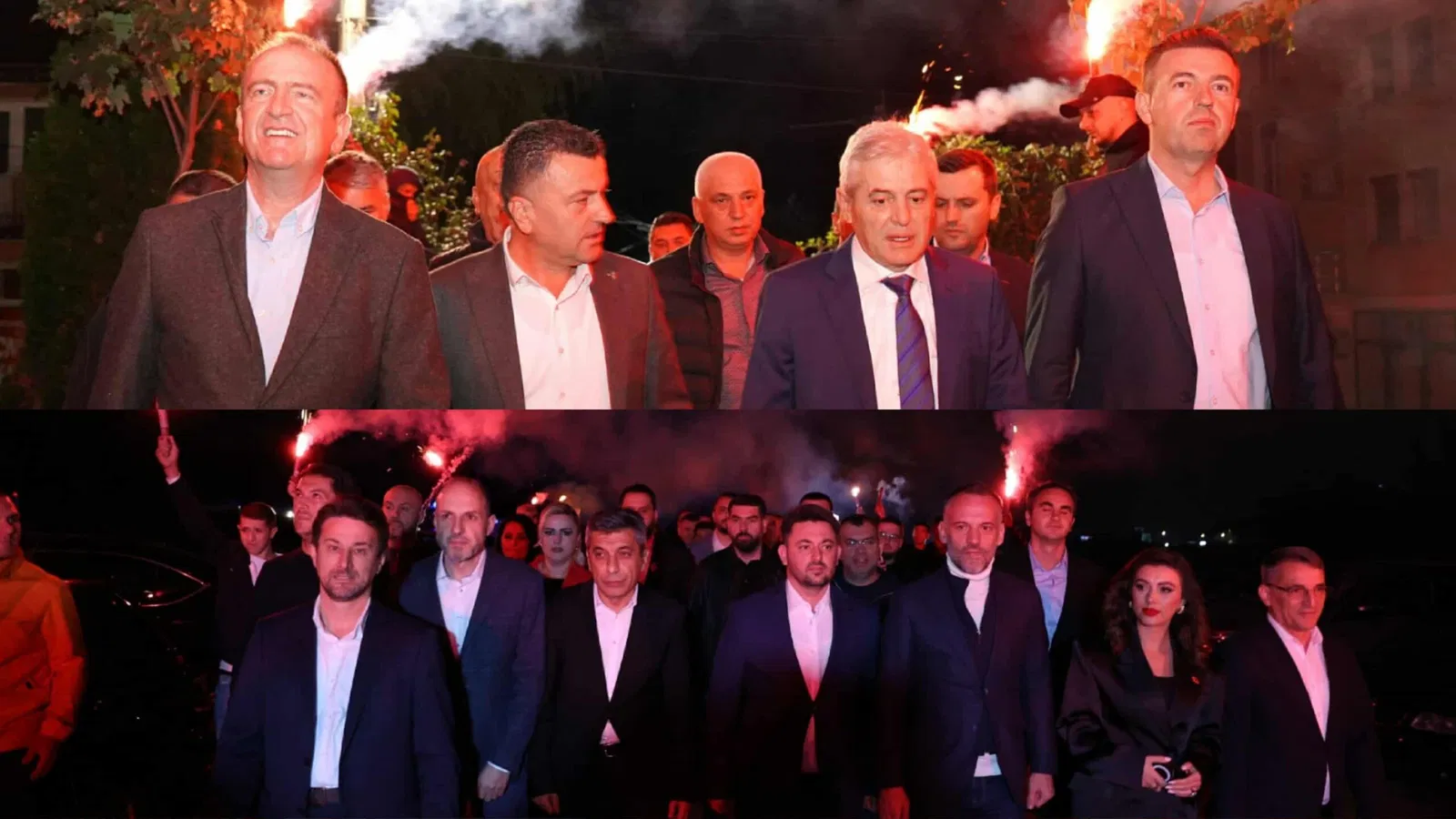DIANA TAHIRI
Ahead of the local elections on October 19, 2025, the Albanian political campus in North Macedonia is at a crossroads between different narratives and political strategies. The parties are shaping their campaigns through a combination of national and European themes, but also through an assessment of local results and performance of previous governments.
As it has already been noted in the analysis “The Albanian Political Campus Ahead of the Local Elections: Between Narratives and Political Pragmatism”, the elections are more than just a local process — they also serve as a test of citizens’ trust in political actors, as well as a stage for positioning before the next parliamentary and strategic political processes, and political opponents are most often confronted at the level of achievements, shortcomings, inactions, failures. For example, DUI uses the European perspective and the equality of Albanians as one of the key motives for mobilization, while the national framework serves for positioning in the inter-party confrontation, and the VLEN coalition focuses on local problems and situations.
As already concluded in the analysis mentioned above, these narratives show that the campaign is not only about local elections, but also about positioning before the future political processes, with a clear emphasis on Euro-oriented values in DUI, and a pragmatic local focus in VLEN.
DUI: Local elections as a referendum for the future
DUI, that is, the pre-election coalition NAI, continues its campaign for the local elections in October 2025 as a “referendum” for Hope, Dignity, and Future. According to the party, voters are not just electing local leaders, but are determining the future of the country, calling for national awakening and responsibility. The campaign emphasizes that the elections are a test of the people’s trust, and that anyone who fears elections has lost that trust.
DUI’s statements say that elections are a democratic measure of the will of the citizens and that every vote is important for the future of the country and the European perspective of Albanians in North Macedonia. The new aspect of their narrative is that elections are not just a local electoral process, but also a test of the legitimacy of political actors before voters.
VLEN: Criticism of the longstanding failures
VLEN accuses that, in the past 20 years, DUI failed to provide even drinking water in Albanian municipalities. In their campaign rhetoric, they refer to local situations from the past, emphasizing that many municipalities have been left without concrete infrastructural solutions or a long-term vision.
The coalition emphasizes the continued responsibility of both former and current officials for the conditions that are being criticized today and uses this history as an argument for its focus on local accountability and real results. VLEN presents its platform as oriented towards specific steps and solutions for the needs of the citizens, opposing promises that are repeated from the past.
VLEN also criticizes the attempts by other political actors to avoid elections, assessing that every chance for a legitimate election is a test of the trust that the party has lost. The party points out that fear of the voters is a key factor in their strategy and that this determines their rhetoric of “stability” and “saving funds”.
Political positions and narratives
- Mobilization and legitimacy: DUI uses the national and European perspective as a motive for voting and a test of the people’s trust. VLEN interprets this narrative as an attempt to divert attention from local results.
- Identity and dignity: DUI focuses on European integration and equality of Albanians, while VLEN emphasizes the need for concrete results and local accountability.
- Fear and political confrontation: DUI emphasizes the fear of losing trust, whereas VLEN emphasizes the real situation of the municipalities and DUI’s shortcomings.
- Taravari in the NAI coalition: DUI with Taravari expands its network beyond its classic core (Tetovo, Struga, Čair). Taravari has influence in Gostivar, but also sympathizers in Kičevo, Kumanovo, and Skopje. With this, DUI:
- gains access to voters who were previously in opposition to it
- creates an impression of “national unification” across the Albanian political spectrum
- reduces the risk of fragmentation within the Albanian electorate
If Taravari secures funds, access, or support through DUI (or through the NAI-DUI coalition), VLEN may find itself in a position where it does not have access to some of those resources, which could have an organizational impact (such as campaigns, logistics, contacts with voters).
However, the perception among part of the public and potential DUI voters that there is no real difference between political actors and that politics are becoming without alternatives, has the possibility to be reinforced with the unification of the former opposition and the government, namely, Taravari’s joining DUI.
Campaigns and perspectives
During the election campaign, DUI uses the term “referendum” as a central point of its strategy, outlining the importance of every vote for the future of the country. VLEN, for its part, emphasizes the responsibility of local authorities and the results of their 20-year rule, with a focus on concrete local needs and criticism of the long-standing shortcomings.
Voters are faced with two parallel frameworks: one that links will to national and European values, and another that assesses local accountability and results in the municipalities. These positions show the complexity of the Albanian political campus and the challenges ahead of the elections on October 19, 2025, but also the post-election mood of the citizens, once the pre-election euphoria “fades” and attention moves to fulfilling the promises made.
This text is part of the Democracy Navigator project, which CIVIL – Center for Freedom is implementing with the support of the Federal Foreign Office of the Federal Republic of Germany. All analyses, interpretations and final responsibility for the content remain solely with the author.
Translated by: N. Cvetkovska

